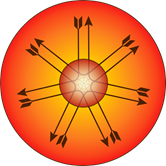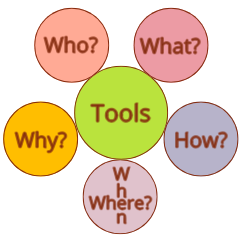Hello/To study
Yes! We study.
- From classical Latin, studēre—to strive after, to concentrate on, to support, favor, to apply oneself, to give attention, be eager, be zealous, take pains, be diligent, be busy with, be devoted to. . . .
Sometimes I feel amazed, working to create A Place to Study. To study! Who would have thought?
Study— the word, entered my vocabulary in elementary school, maybe yours too. Remember how around 4th or 5th grade, you stopped staying in one room with one teacher and started going to different rooms with different teachers for different subjects. Some days there'd be a gap, with a study period covering it up. There we learned to sit quietly, cloaking our idleness with the appearance of attending intently to some make-work assignment. And on through the system, study as make-work continued. It fell far short of the ancient expectation.
To grasp the actualities of study, let's think back to before we experienced the collateral damages of systematized instruction. We have all shared richer experiences of studying in a full, authentic sense, albeit without the name, as we wended through the perplexities and play of childhood, youth, and on into the fullness of life. Study began for each of us as "the baby, assailed by eyes, ears, nose, skin, and entrails at once, feels it all as one great blooming, buzzing confusion."[1] Study begins at birth, a drive to make sense of all the confusion.
It's extraordinary to watch how many moves, and sounds, and sightings, and textures catch an infant's attention as she draws herself into her growing sphere of perception and action, as she cracks the codes of speech, studying how to coordinate lungs, larynx, tongue, and lips over many months to shape gurgles, howls, and babble into intelligible talk. Each of us began to discriminate and associate, to disaggregate the confusion into glimmers of coherence, meaningful order, a world in which to grow, play, create, and interact with others. The human condition requires we each make sense of the world, for we spring to life, inchoate and ignorant, encompassed by its vast, glorious puzzle within which we must maintain ourselves — doing that is the heroic epic that life uniquely scripts for each and every person.
From the start, study is a vital function. Every living entity lives as a self-maintaining process, sustaining itself with and against circumstances — the pressure of dead forces and vital actions pressing in on us. Most things are not alive, not living entities; they just exist, buffeted by the external forces playing upon them. Living creatures do more than exist; they live, they interact with external forces, improvising capacities to act vis-à-vis exigencies in an effort to form themselves as active influences shaping their world. Human beings, over a long succession of generations, have improvised complex cultural powers with and among which we have augmented our physical capacities to cope with all that impinges upon us. Each person partakes in that cultural self-empowerment, but must do so starting from primal ignorance: at birth, each is inchoate physically and entirely unformed culturally.
Our primal ignorance does not consist only in our not knowing how to do what we want and need to do. In addition, and more importantly, primal ignorance consists in our not knowing what, all things considered, we can do, we might do, or we should do. And no matter how much we learn how to do things, that primal ignorance of not knowing what we can, might, and should do sticks with us.
We emerge into our lives, into the activities of self-maintenance, without our powers or purposes laid out for us, knowing neither what we can do, nor how we can do it. And whatever what and how we choose to try, we must try it where and when, at this time and place that the ever-moving now calls us into action. We must try, invent, improvise, create it as we go along, uncover and disclose how we will maintain ourselves in the midst of circumstance. We have no checklist of possibilities given to us, clear and evident, pointing out the path. Study becomes the engine of self-formation as we chart our path through our primal ignorance, working out what we can and should do to maintain ourselves as self-maintaining, living persons.
- ↑ William James The Principles of Psychology, I, 462.






